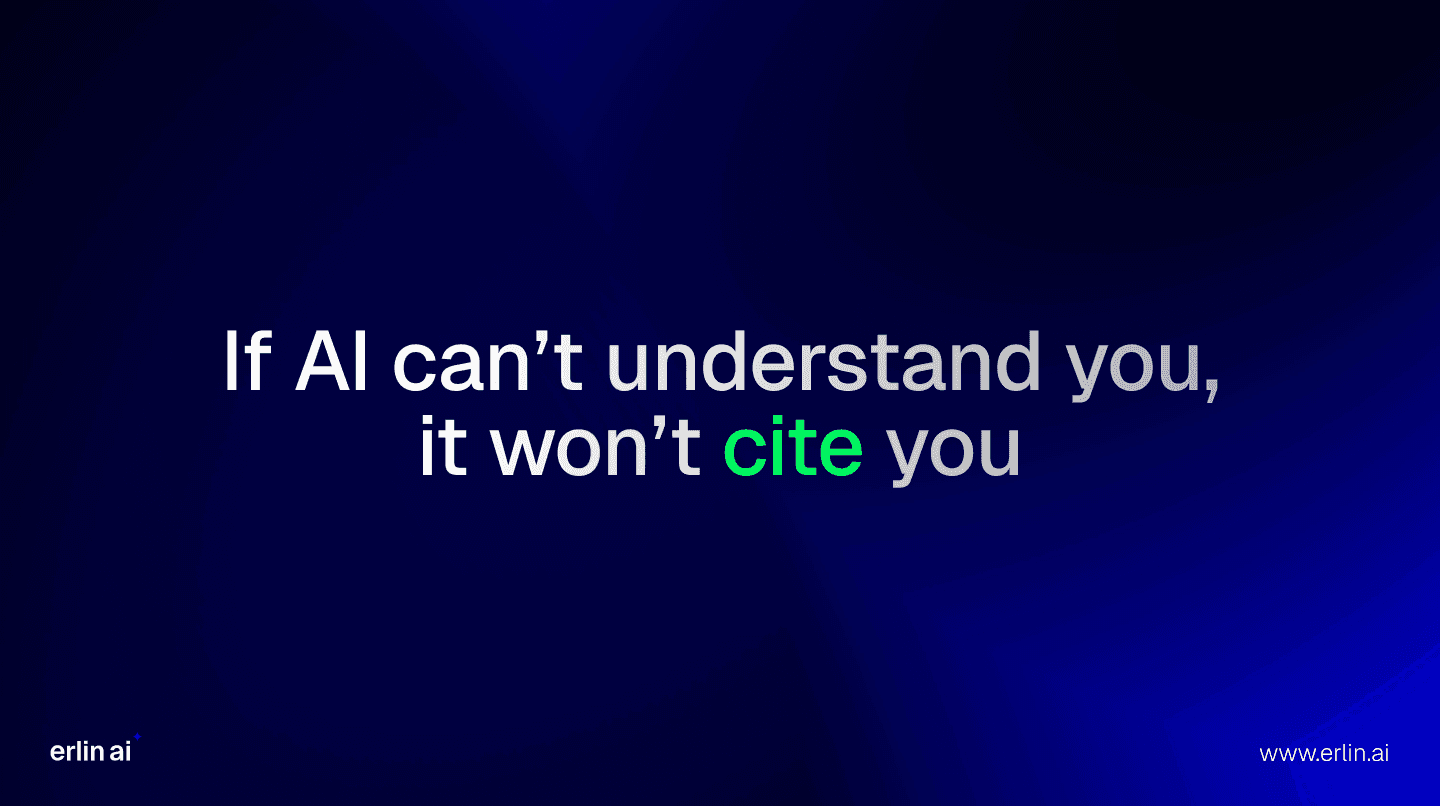
Based on our analysis of ecommerce sites across multiple verticals, AI shopping engines now play a dominant role in product discovery journeys. Over 60% of U.S. consumers are using tools like ChatGPT, Gemini, or Perplexity for search-like tasks and that behavior is shaping how brands get visibility.
These platforms don’t behave like traditional search engines. They don’t just crawl and index; they extract structured meaning from machine-readable signals. In our audits, schema markup consistently emerged as one of the most important inputs in that process.
When schema is missing or incomplete, AI systems struggle to understand what a brand offers, how its products are organized, or why a page is relevant. Structured data is what AI sees and schema is what makes that data legible.
What Is Schema (and Why It Matters for AI Search)
Schema consistently functions as the primary layer of meaning AI platforms rely on to understand ecommerce content.
Schema is structured metadata embedded in your site’s code. Written in JSON-LD format, it tells AI systems what each page element actually represents not just how it looks. In practice, it maps out the core attributes of your products, content, and brand.
We’ve seen that the presence of schema significantly improves how AI systems extract and interpret information. It includes elements like:
Product names and descriptions
Prices, stock status, and GTINs
Review scores and customer sentiment
Author details and publication data
Brand identity and business info
When this structure is missing or incomplete, AI platforms hesitate to cite or recommend the content. Pages may still load for users, but to AI, they remain ambiguous or untrusted.
In our analysis, schema markup directly influenced inclusion in rich shopping panels, product comparisons, cited answers, and brand summaries across ChatGPT, Perplexity, and Google SGE.
Put simply: schema is what turns your store into machine-readable content and that’s what AI systems require to understand, compare, and rank you.
How AI Platforms Use Schema Markup for Visibility
AI-driven search platforms rely on structured data to extract reliable information at scale. Schema markup particularly in JSON-LD format serves as the foundational layer for parsing product attributes, ranking results, and generating answer modules.
This structured approach is central to Answer Engine Optimization. See how schema fits into the full AEO framework in Answer Engine Optimization for Ecommerce.
ChatGPT
ChatGPT sources ecommerce data through OpenAI’s GPTBot and Bing’s structured data index. Product recommendations in AI-generated responses are composed using schema fields embedded in source code not through manual curation.
The most frequently extracted fields include:
name,description,brand(Product schema)price,priceCurrency,availability(Offer schema)aggregateRating,reviewCount(Review schema)logo,url, andsameAs(Organization schema)
In structured queries such as “best protein powders under $40,” product cards typically display brand, pricing, rating, and categorical tags like “plant-based” or “gluten-free.” These data points are drawn directly from schema, not inferred from visual content.
Review of surfaced results shows a high correlation between schema completeness and citation frequency. Product pages lacking valid schema were significantly underrepresented.

Perplexity
Perplexity operates through live crawling using PerplexityBot. Its response system prioritizes high-confidence citations, favoring pages with rich metadata and structured context.
In ecommerce queries, inclusion in Perplexity’s answer boxes and shopping modules depends on:
Schema presence and validity (Product, Offer, Review)
Proper use of GTIN, brand, and availability fields
Structured consistency across metadata and entity types
Perplexity’s “Buy with Pro” module uses schema to filter and rank product listings. Pages missing price or product type definitions are deprioritized. Structured data enables Perplexity to reduce hallucination risk and return answers aligned with user intent.
Schema Types That Impact Ecommerce Visibility Most
Not all schema types contribute equally to AI visibility. In ecommerce-specific use cases, certain structured data fields appear repeatedly in AI-generated product recommendations, cited answer boxes, and shopping modules. This pattern was consistent across our audits of ecommerce domains. These schema types form the baseline for accurate parsing, product recognition, and ranking across platforms like ChatGPT, Perplexity, and Google SGE.
Product, Offer, and AggregateRating
These three schema types are foundational across AI shopping features:
Product: Defines attributes such as
name,brand,category, anddescription. Used to determine what the product is and how it compares to others.Offer: Captures pricing (
price,priceCurrency), inventory (availability), and condition (itemCondition). Enables filtering by cost or stock status.AggregateRating: Combines sentiment (
ratingValue) with credibility signals likereviewCountandbestRating.
This schema trio consistently appears in surfaced results involving filters like “best under $100,” “in stock,” or “top-rated.”
Explore how to structure PDPs so that schema and product copy reinforce each other in AI-Readable Product Pages.
FAQ and HowTo
FAQPage and HowTo markup increase inclusion in conversational queries and answer summaries. Common use cases include:
Quick clarifications (“Is this safe for daily use?”)
Step-based content (“How to apply a retinol serum”)
These structured formats help reduce ambiguity and allow AI models to extract self-contained responses.
Article, Author, and BlogPosting
AI engines show a preference for citing editorial content that includes clear publication and authorship metadata:
Article and BlogPosting schema help structure long-form content
Author schema improves trust and relevance scoring, particularly in health, wellness, and expert-driven categories
Citations are more frequent when authorship and update timestamps are available in machine-readable form.
Organization and AboutPage
Schema for brand identity is essential in entity linking and citation accuracy. Pages that include:
name,logo,url,sameAs, and founding infoLinked AboutPages or contact schema
are more likely to be surfaced in brand summaries or used as the default reference entity. In the absence of this structure, AI systems may substitute competitors with stronger structured context.
Review and AggregateRating
AI ranking systems parse structured review content to support credibility scoring, freshness filtering, and intent-matching.
Fields that matter include:
reviewRating(e.g., 4.7 stars)reviewBody(quoted text)authoranddatePublished
These fields help populate product lists in queries like “best-reviewed [category] with more than 1,000 reviews.”
How Erlin Identifies Schema Gaps Across Your Store
Analysis across ecommerce sites, spanning DTC and multi-category retailers, revealed a consistent pattern: schema markup was incomplete, outdated, or entirely absent, even on high-traffic domains.
Common failures included:
Missing
Product,Offer, andReviewschema on PDPsUnstructured blogs with no
AuthororArticlemetadataAbout pages lacking
OrganizationdefinitionDisconnected content with no entity linking
These gaps directly limited AI visibility, reducing product inclusion, suppressing blog citations, and misattributing brand mentions.
Erlin was built in direct response to these findings, designed to audit sites the way AI systems do: by parsing structured signals that drive ranking, citation, and brand recognition.
What Erlin Checks
Missing schema: Detects absent Product, Offer, Review, FAQPage, and Organization markup
Incorrect metadata: Flags duplicate titles, broken canonicals, and invalid noindex tags
Unavailable identifiers: Surfaces missing SKUs, GTINs, or stock indicators
Disconnected structure: Finds unlinked breadcrumbs, unstructured blogs, and brand pages without entity identity
These issues may not affect human visitors but they silently block AI engines from understanding, citing, or recommending your content.
Erlin identifies every schema issue and directly connects it to its impact on AI visibility. Each gap, whether it affects blog citations, product inclusion, or brand summaries is matched to a specific behavior in AI results.

Want to see what’s missing from your pages? Book a demo to learn how Erlin uncovers and fixes schema gaps.
Checklist: Make Your Store Schema-Complete
A technical implementation checklist to ensure your store is readable, rankable, and recommendable by AI systems:
Use JSON-LD as the preferred schema format across all pages
Apply Product, Offer, and Review schema to every PDP
Include GTIN, SKU, and availability fields for each item
Add Organization schema to the About page and global footer
Mark up all editorial content with Article, BlogPosting, and Author schema
Structure FAQs using FAQPage markup
Use HowTo schema for guides and tutorials
Validate implementation with Google Rich Results Test and Schema.org Validator
Monitor for schema drift and crawl errors quarterly
Track crawl activity from AI bots like GPTBot and PerplexityBot
Track and Benchmark Your AI Visibility
Schema is the input. Visibility is the output. But without measurement, it’s impossible to know if structured data is actually improving AI performance.
That’s why Erlin includes a visibility dashboard built to track how AI platforms interpret and surface your brand. It monitors which pages are being picked up, cited, or excluded—and how that compares to others in your space.
Key visibility metrics include:
Product card inclusion in ChatGPT, Perplexity, and Google SGE
Presence in AI-generated shopping panels and cited answers
Brand-level summary detection and competitor substitution
Visibility trends over time, segmented by page type and schema category
This layer closes the loop between structured implementation and actual performance—showing where schema is working and where visibility gaps still exist.

Book a demo to learn how Erlin benchmarks your AI presence and uncovers hidden ranking barriers.
Why This Matters Now
AI search engines are fast becoming the default for product discovery. They filter, summarize, and recommend based on structured data, not keywords alone.
Schema determines how your brand is understood and whether your products are included in high-value shopping and answer experiences.
For ecommerce operators, schema has become foundational infrastructure. It drives visibility in a generative first web and powers inclusion across AI search platforms.
If AI can’t read your store, it won’t rank your store.
Share





